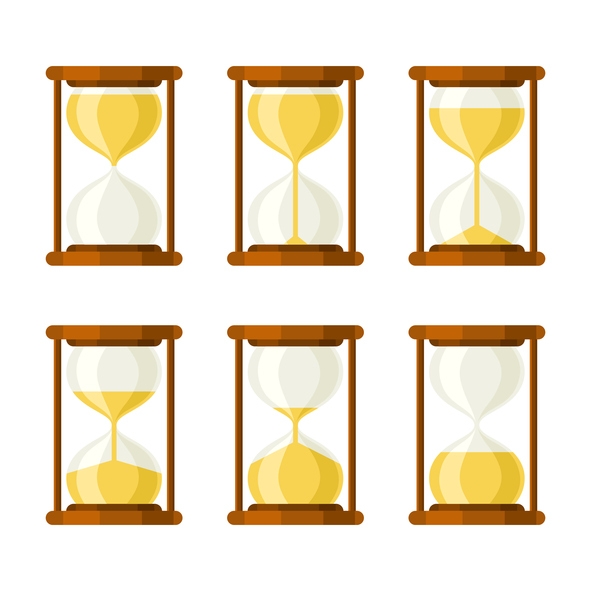You have /5 articles left.
Sign up for a free account or log in.

Istockphoto.com/primulakat
Every 15 minutes, my phone chimes. (Matthew in the next office is a patient and understanding person. I owe him a coffee.) I click on the Google Sheets tab that’s open on my work and home computers, my phone, and my iPad, and quickly enter what I was doing for the last 15 minutes:
- Writing
- Reading (in transit)
- Exercising
- Relationship building (coffee with Grace)
- Working (postdoc salary audit)
- Sleeping
At the end of my 168 hours -- the number of hours in a week, a number massively larger than the number of hours I feel like I have in a week -- I do my own audit, an analysis of how I spent my time. And then I use that information to make decisions about how I want to use my time -- how I want to live my life -- over the coming weeks, months and years.
I’ve figured out the general contours of life after the Ph.D. I’ve been doing the career part of it for more than five years, and with a 2-month-old baby, I’m getting a handle on the new demands of the family side. But I’ve recently found that conducting your own time audit can be a useful weapon in your arsenal when you’re trying to figure out your priorities and possibilities after grad school or a postdoc -- and for your whole life, not just for work.
The idea for this kind of time audit comes from Laura Vanderkam, a journalist and writer who authored the bestseller 168 Hours: You Have More Time Than You Think. She began writing about time perception and use when she realized how often people -- especially women -- curtail or opt out of career building, often in favor of family building, because they feel like they don’t have enough time to do both well. Vanderkam is a prolific writer and the mother of four, so she instinctively felt that this was a false dichotomy. She set out in 168 Hours -- in which she analyzes the time logs of hundreds of busy people with both families and careers -- to prove that her instincts were right.
Vanderkam’s argument, one I find persuasive, is that you have more time than you think. Enough time, in fact, to do just about everything that’s important to you -- if not in a single week, then certainly over the course of a few weeks or months. Think about it this way: even if you work 60 hours a week and sleep eight hours a night, that leaves you 52 hours a week -- a full seven hours a day -- to do other things, like commute, have a family, exercise, read, spend time with friends and fart around on the internet. It also means that you probably have time, in those 52 hours, to do things that are going to help set you up for a successful post-Ph.D. transition. That might include learning about different possible jobs in which you might be interested, setting up an informational interview or two, or attending a career-development workshop on campus.
Oh, and did I mention that 52 hours is probably a low-end estimate of how much nonwork and nonsleep time you have in your week? In analyzing time logs, Vanderkam found that while many of us think we work 60-hour weeks, we grossly overestimate how much time we spend working. The more hours we think we work, the more we overestimate. We literally have more time than we think we do.
Doing a time audit will likely show you that, despite the long hours you’re putting in at the lab or the archives, you do have time for the self-care, fun, career exploration or relationships you’ve been neglecting (if you’re anything like I was as a researcher) in favor of work. That can have some serious implications for how you think about your future, especially your career. Are you a graduate student or postdoc thinking about not pursuing a career in the professoriate -- or in another field notorious for its time demands, like consulting -- because you don’t think you’ll have time for your job and your life? Guess what? You probably do.
So here’s what I suggest: do a time audit. Pick one week and track your time in 15- or 30-minute increments -- and it can be any week, as all weeks are both typical and atypical enough to give you useful data about how you use your time. Yes, this takes time, but the audit will pay for itself in the time you find. At the end of the week, assess how many hours you’re spending on key areas like the ones I listed above (work, exercise, relationships, reading, TV, internet, cooking and eating, commuting, etc.).
Then, reflect on how your time use aligns with your priorities and preferences. This reflection can be extremely helpful in guiding your thinking about what you want to change -- or not change -- in your life in the short and long term. Some things your audit can tell you:
- When I transition into a post-grad school career, do I want a job that takes up more or less of my time than my current research workload?
- Am I OK with how much time I’m spending in transit between home and campus right now, or do I want to prioritize finding a job that’s close to where I live?
- Am I spending time on building relationships with the people who are important to me? Is that relationship work happening at work as well as outside, or is my research workload hindering my ability to prioritize people in a way that I want to change?
- Are all of the work hours that I’ve recorded productive ones? Or are some of them spent just showing my face in the lab, even if I don’t have meaningful work to do (or I’m too tired to do it well)? Or writing late at night when I’m unfocused and unproductive? What would happen if I cut those hours out and devoted that time to something else? What else could I make time for? Downtime? Relationships? A hobby? Yoga? A baby? A side gig that I want to parlay into a new career?
- Same goes for unproductive hours at other times. How much time am I spending, say, surfing the internet mindlessly (beyond what I need to wind down, connect with people or check in on the parts of social media I find valuable and useful)? What else could I be doing with that time?
- Do I really not have time to exercise, or am I just telling myself that? (This is one that makes me wish that I’d done a time audit during grad school. Lies! I was telling myself lies.)
- How do I feel about the ways I’m using my time? Even if I’m only spending 30 hours a week on my research, do I hate those hours? Which ones felt expansive in a good way, rather than dragging on endlessly? Which flew by so quickly that I couldn’t believe it was already lunch, because I was totally in the flow? What was I doing during those hours, and what future paths can I explore that will let me do those things most of the time?
My time audit confirmed what I already knew: that I’m content with the number of hours I work at my day job and as a freelance writer and coach, and that I find those hours productive, valuable and in line with my priorities. It also told me -- as Vanderkam’s conviction suggested it might -- that I did indeed have time to keep doing that work and expand my family, if I cut back on some of my (far more ample than I had realized) leisure and reading time. (This has proven to be true: although I’m taking care of a 2-month-old baby full time, I still have time to read and to write pieces like this, in addition to some ongoing creative and research work.)
Your time audit results might be more surprising, or illuminating, than mine.
You might find that how you’re using your time is not in line with your priorities and passions and then set out to find a life and a career that better align with your vision of your future.
You might realize that you have the time -- and the desire -- to work more than you do now and tackle some new professional challenges.
You might realize that a fair few of your work hours are imaginary or unproductive, and instead use that time to relax, learn to play the guitar, hunt down more pieces for your antique pottery collection or have a baby.
Who knows?
But I do know this: it’s easier to know how to make the most of your time and your life, to make decisions about your present and your future -- about your 168 hours this coming week, your more than 8,000 hours this coming year -- if you know what you’re doing with your time, with your life, right now.




